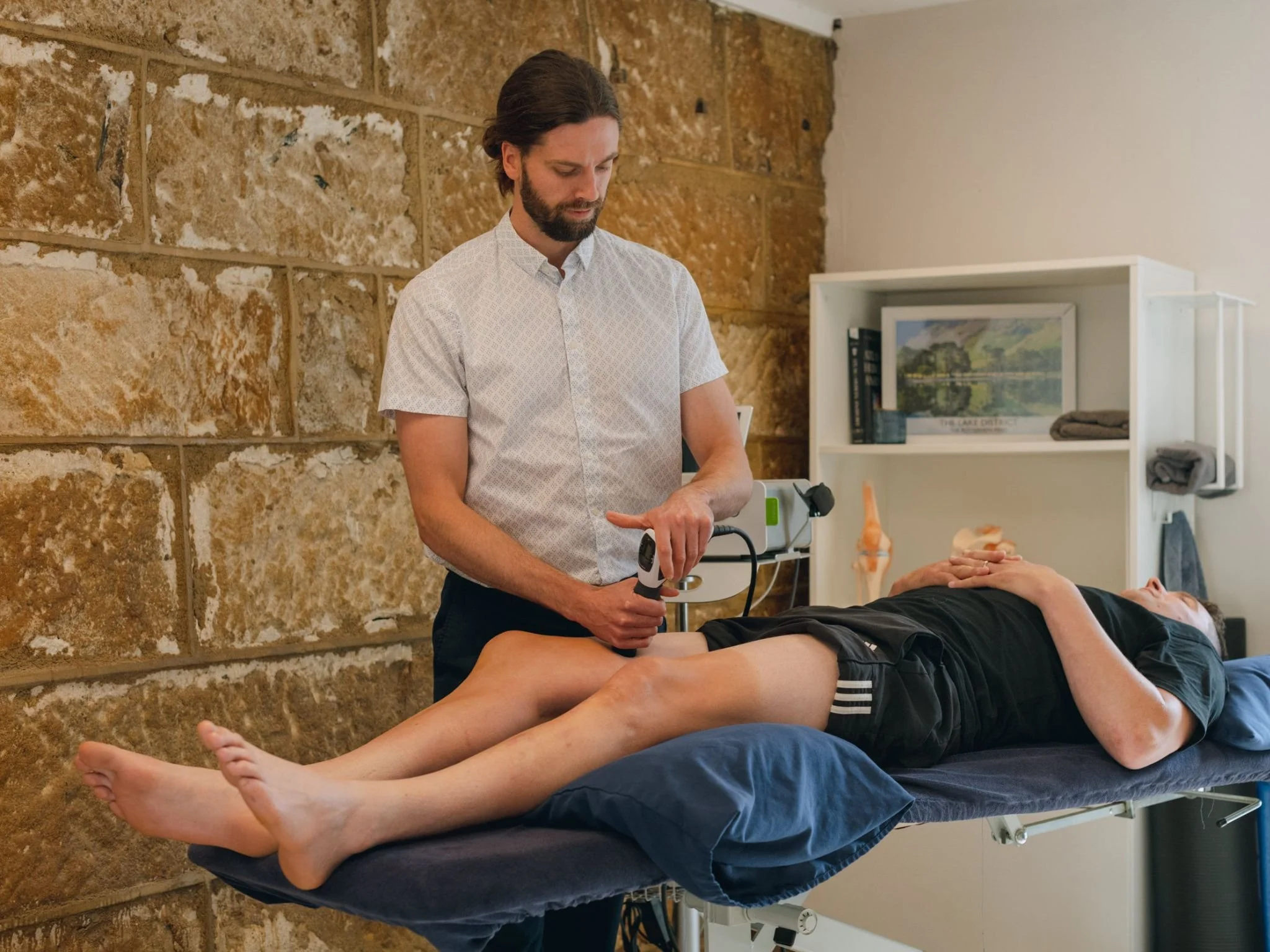
Non-surgical solutions to persistent problems
Extracorporeal Shockwave Therapy (ESWT) is a non-invasive treatment where a hand-held device is applied outside the body, introducing energy to painful areas and promoting the body to heal itself. Regardless of the cause; injuries can be debilitating and, if left untreated, may affect your daily life. Shockwave is a non-surgical, non-invasive treatment option for a wide variety of conditions with no downtime. In having a long-term injury many people think that surgery is their only option to get better but there is risk involved and a long recovery time associated with this.
Shockwaves are high-energy sound waves which are transmitted to the affected area to accelerate healing. The treatment increases blood flow, decreases localised pain and stimulates cell regeneration - this encourages the body to repair itself. Shockwaves also break down injured tissue and calcifications.
Sits well with our holistic treatment approach and is safe
This treatment approach fits well with our osteopathic principles, as it encourages the body to heal itself. It also has advantages over surgical interventions or steroid injections, with less potential complications associated with it and a faster return to normal activities.
As well as working well along osteopathic treatments, there is NICE guidance for a large number of indications and the treatment is used within the NHS. Shockwave Therapy performed by qualified therapists is largely risk-free.
You may experience some discomfort during treatment but the pain should be tolerable. Due to the analgesic effect of Shockwave Therapy many patients report immediate pain relief following treatment.
Common problems and typical treatment plan
Common indications include: achilles tendonitis, plantar fasciitis (heel pain), patellar tendonitis (jumper’s knee), medial tibial stress syndrome (shin splints), epicondylitis (tennis or golfers elbow), periarticular shoulder pain, tendinosis calcarea (calcific tendonitis), greater trochanteric pain syndrome (hip) and back pain.
The amount of treatment sessions will vary dependant on the type of shockwave used and conditions being treated. As a general rule a course of 3 - 6 treatment sessions is advised. As this is encouraging the body to heal itself, your body will progress in the healing process even 2-3 months after treatment has stopped.
Statistics vary based on the condition being treated - from 60-90% success rate. Studies have shown 90% of patients with achilles tendonitis (heel pain) will experience a full recovery or significant reduction in their pain and injury.
You can book in for shockwave therapy here on our website. Please feel free to contact us about this before you book, as it may be that this isn’t the right treatment for you.



